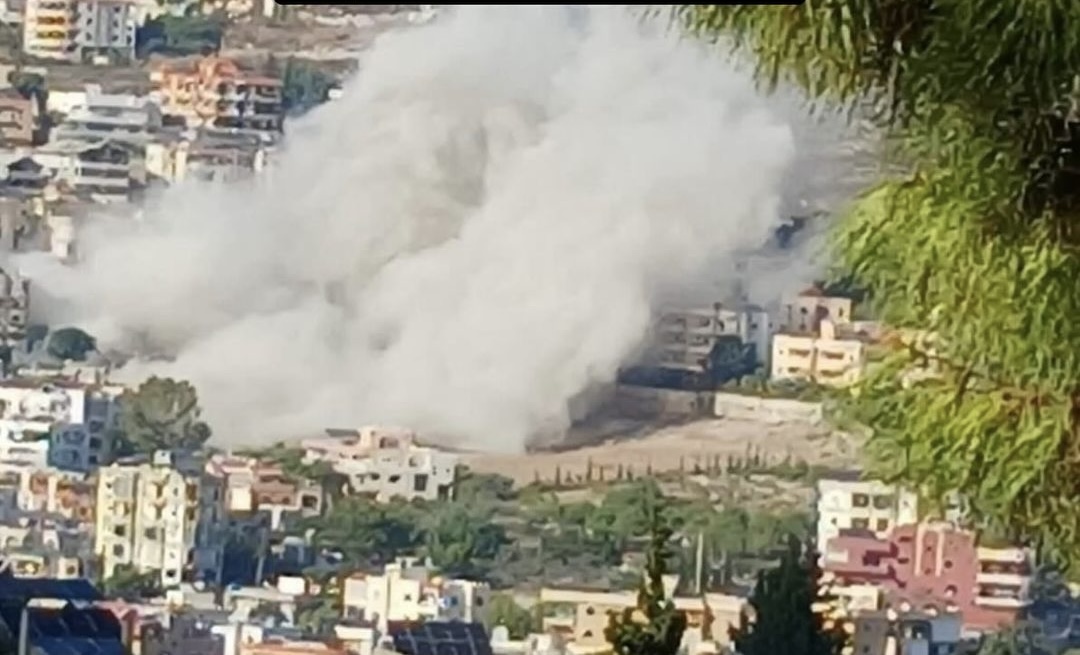Israel targets Hezbollah but (also) strikes Christians: 32 dead in Aïn el-Delb
Yesterday alone, more than 105 people were killed and 359 wounded in Lebanon. The southern village was also in the crosshairs, with ‘at least one confirmed victim’ in the Christian community. The target was the head of the Party of God in Sidon, and an entire building inhabited by civilians was razed to the ground to eliminate him. PM Mikati speaks of one million displaced people. Maronite Patriarch: strengthening unity among Lebanese.
Beirut (AsiaNews) - In the more than 105 dead and 359 wounded recorded yesterday in Lebanon as a result of Israeli bombardments against Hezbollah targets, which continue unabated even after the killing of the head of the pro-Iranian Party of God Hassan Nasrallah, there were also dozens of victims in a Christian village: Local sources, relayed by messages and condolence posts on social media, report a provisional toll of at least 32 victims in Aïn el-Delb, near Sidon, in the south of the country, which was attacked by fighters bearing the Star of David along with the Békaa valley. The raids, explained an institutional personality to AsiaNews on condition of anonymity, reportedly took place in the late afternoon ‘in a mixed area of the village with a Christian majority. At the moment there is confirmation of the killing of a Christian woman and the wounding of at least 53 people, some of whom are in serious condition'.
The AsiaNews source explains that ‘the target of the Israeli attack was an experienced and prominent fighter of Hezbollah, identified by the name of Ahmad Awarki’, who is among other things the ‘head’ of the Shiite movement ‘for the city of Sidon. In order to reach him and be sure of killing him', he concludes, “they did not hesitate to carry out a blanket attack and an entire building collapsed under the barrage of missiles”. The total death toll from the demolition of the building - which ‘stands in a mixed area inhabited by Christians and Muslims in a predominantly Christian village’ - and the series of bombings in the area could ‘be even more than fifty’.
Also in the crosshairs of the Israeli army (IDF) is Tyre, one of the main cities in the south, hit for the first time since 8 October 2023, when Hezbollah opened a ‘support front’ in Gaza. In the evening of 28 September, several bombings hit a hangar in the Jal el-Bahr area, at the northern entrance of the city. Two others targeted the eastern area and a fourth an intersection near the Jabal Amel hospital. Drone strikes and fire also hit a pharmacy, residential buildings and the southern waterfront promenade. Witnesses claim that the entire administrative area of Tyre has been under heavy attack by IDF fighters since the morning.
In the meantime, the humanitarian emergency of Israel's war against the Lebanese Hezbollah, from the capital to the south in the border area, is getting heavier. According to interim Prime Minister Najib Mikati, the number of displaced people forced to leave their homes has already reached one million, for ‘the largest displacement movement ever’. The massive wave of air strikes, the government chief continued, has forced the population ‘to flee Beirut and other parts of the country, including the southern border areas’. In the meantime, local authorities and humanitarian groups, including Caritas Lebanon, are deploying efforts and resources to assist all those in need, with shelters and hospitals increasingly under pressure.
Finally, the Maronite Patriarch Cardinal Beshara Raï also spoke yesterday about the latest events in Lebanon with the escalation of the conflict and the death of Hezbollah's leader. Beshara Raï, in the homily of the Sunday mass that often becomes an occasion for an analysis of the political framework. ‘The killing of Hassan Nasrallah,’ the cardinal stressed, “has opened a wound in the hearts of the Lebanese”, but what has happened, as in the past with the murder of Christian and Muslim leaders, “strengthens the unity among the Lebanese, a unity of blood, belonging and destiny”. In the service, celebrated at Dimane's summer residence and in which prayers were said for peace, the cardinal also referred to the political-institutional crisis that has been blocking a nation for some time without a president of the Republic and an interim government. ‘The international community,’ he concluded, ’is called to act to interrupt the vicious circle of war, death and destruction, preparing the ground for a just peace that guarantees the rights of all peoples and components of the region. And all Lebanese are called to support the ‘Lebanese house in the spirit of the National Covenant, in a state of law and institutions’.
11/08/2017 20:05







.png)










